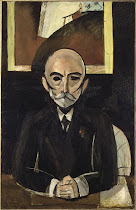Here's a fun way to find out your personal politics.
Imagine a new breakfast cereal on the market: Shit! It's not a clever name, it's actually human shit. Some consumers are convinced to buy Shit from their impressive ad campaign Actually, to your horror, Shit becomes the number one selling breakfast food.
What's your reaction:
A) They wanna eat shit? Let them eat shit.
B) Somebody has to intervene.
Your answer to this question defines your political perspective. What the fuck does that mean? Simply put, who you think should have the power to make decisions. A) Every person should decide for oneself or B) Someone who knows best should decide.
You can see this divide in the past and present. In 1 AD The Romans had optimates and populares politicians and in 2009 the Americans have the Republican and Democratic party. For instance, why is there such anger toward public healthcare in America? The general ethos in the United States is that people should decide for themselves -fuck government intervention. It's often hard for Canadians to relate since we're used to a higher level of the government regulating our lives (healthcare, liquor stores, television, etc.)
So, you chose A:
Congratulations, you believe in people! We are all able to make rational choices. Life! What an adventure!
Unfortunately, you recognize the right for stupid people to have an equal say in the laws that govern your life.
So, you chose B
Congratulations, you can help people who are being manipulated by powerful corporations that care more about profit than their consumer's health.
Unfortunately, you're stomping on our freedoms you fascist son of a bitch. You don't trust people to know what's good for them. Why don't we just let you and your panel of experts build your perfect world and shoot anyone who disagrees?
Level 2
Does your opinion change if we make it more personal? Instead of thinking about the dull masses, what if it was your friend or family member eating Shit? Still think the same thing?
Comments steal:
-Hey! Replace Shit with Froot Loops and you have a real world example.
Wednesday, October 28, 2009
Wednesday, October 7, 2009
The Reader
Usually, I criticize oversimplifications. For instance: the Nazis were evil. In fact, in historical context the Nazi party was appealing. Hitler did not trick Germany, he was the manifestation of a frustrated nation. Blah, blah, blah. Secretly, I've always appreciated the ignorant condemnation of the Nazi party. It has mass appeal and maybe our stupid outrage would strengthen each generation against fascism and genocide.
Then I read The Reader. It's clear that resolve is weakening.
It's the story of an unlikely intimate relationship between a young man and older woman. Years later he becomes a lawyer and discovers she's on trial as a Nazi war criminal. The book is intelligent, thoughtful but it lacks the crass condemnation of Nazis. In The Reader, we're meant to see the Nazi war criminal as a human being. This requires a careful dance to ensure the reader doesn't drum up instant hate. I was unnerved by this approach. Specifically, I felt the vague term 'prisoners' was often used to avoid 'Jews' sidestepping our emotional reactions to the Holocaust.
Again, we're meant to see the Nazi war criminal as a human being. While I have always argued for this on an intellectual level, I felt safer in a world where we simply chanted Nazis are bad. I guess I believe that most adults should be treated as children.
Literature is an insult to history. It's like turning 9/11 into a rom-com. Historical fiction is a distasteful reduction of facts into recognizable story arcs and emotion. I watched Tarentino's revenge fantasy Inglorious Basterds. I realized that a generation will grow up thinking that the Americans killed Hitler (or at the very least threatened him -we still deny the Soviets their victory).
Inspired by this new 'Holocaust lite' resurgence of WWII in fiction I am going to write a one hour lecture teaching the Nazi party the way I wish I learned about it in high school.
I believe outrage and storytelling miss the point.
Then I read The Reader. It's clear that resolve is weakening.
It's the story of an unlikely intimate relationship between a young man and older woman. Years later he becomes a lawyer and discovers she's on trial as a Nazi war criminal. The book is intelligent, thoughtful but it lacks the crass condemnation of Nazis. In The Reader, we're meant to see the Nazi war criminal as a human being. This requires a careful dance to ensure the reader doesn't drum up instant hate. I was unnerved by this approach. Specifically, I felt the vague term 'prisoners' was often used to avoid 'Jews' sidestepping our emotional reactions to the Holocaust.
Again, we're meant to see the Nazi war criminal as a human being. While I have always argued for this on an intellectual level, I felt safer in a world where we simply chanted Nazis are bad. I guess I believe that most adults should be treated as children.
Literature is an insult to history. It's like turning 9/11 into a rom-com. Historical fiction is a distasteful reduction of facts into recognizable story arcs and emotion. I watched Tarentino's revenge fantasy Inglorious Basterds. I realized that a generation will grow up thinking that the Americans killed Hitler (or at the very least threatened him -we still deny the Soviets their victory).
Inspired by this new 'Holocaust lite' resurgence of WWII in fiction I am going to write a one hour lecture teaching the Nazi party the way I wish I learned about it in high school.
I believe outrage and storytelling miss the point.
Subscribe to:
Comments (Atom)






